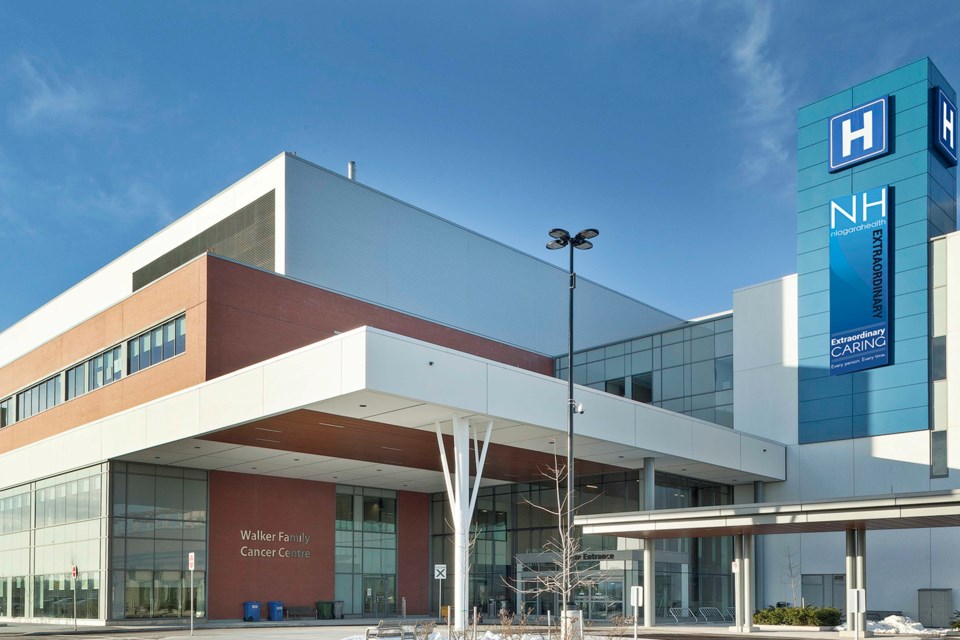NEWS RELEASE
NIAGARA HEALTH
*************************
A unique partnership initiated by Niagara Health has led to a global first while putting the hospital on the path toward economic reconciliation with Indigenous Peoples.
Niagara Health recently became the first hospital in the world to receive a shipment of Indigenous-supplied, acute care nitrile medical gloves. The gloves, manufactured by PRIMED Medical Products, are distributed exclusively by Certified Aboriginal Business Medical, Surgical and Safety Supplies (MSS) Ltd. through Mohawk Medbuy Corporation, a not-for-profit, shared services organization that provides supply chain and other services to hundreds of Canadian hospitals.
The gloves are co-branded with PRIMED’s logo alongside MSS’s Indigenous stylized bear branding, bringing a visible Indigenous presence to operating, examination, testing and treatment rooms at Niagara Health’s Fort Erie, Niagara Falls, Port Colborne and Welland sites.
The gloves are also symbolic of Niagara Health’s commitment to economic reconciliation and implementing certain calls to action by the Truth and Reconciliation Commission.
“We want to show our commitment to Economic Reconciliation,” says Sue Nenadovic, Niagara Health’s Director of Strategic Sourcing and Logistics. “We’re actually taking action that starts us on a critically important journey.”
The collaboration came to be after former Niagara Health board member and Mi’kmaw lawyer Bernd Christmas introduced Angela Zangari, Niagara Health Chief Financial Officer and Executive Vice-President, Finance, Redevelopment and Facilities, to MSS President James Hiebert. Both Christmas and Zangari were intent on following the federal government’s lead of achieving five per cent procurement from Indigenous businesses.
“I always had that idea that we should buy Indigenous products as best we can,” Zangari says. “Our goal was ‘How can we make this work?’ Even if it’s small steps, let’s make this happen.”
Zangari, who sits on the Mohawk Medbuy board, connected Hiebert with Tony DiEmanuele, the company’s President and CEO, to initiate building an Indigenous value-based supply chain starting with MSS.
From there, Mohawk Medbuy introduced Hiebert and MSS to some of their contracted vendors, including PRIMED to see where the collaboration could go. The result was co-branded gloves that Mohawk Medbuy is now marketing to its member hospitals, explains Veronica Guido, Mohawk Medbuy’s Director of Indigenous Partnerships and Strategies.
“Without Niagara Health, that initial introduction to James wouldn’t have happened and it’s been a butterfly effect,” Guido says. “Now the gloves are here and it’s really exciting to see this come full circle and be a product that we’re seeing in hospital rooms. It’s a visible reminder that Indigenous Peoples are here, and Economic Reconciliation is possible and can happen if we put our minds to it and work to support Indigenous businesses and entrepreneurs.”
Economic Reconciliation is the inclusion of Indigenous Peoples, communities and businesses in all aspects of economic activity, nurturing their success and prosperity. This partnership starts that journey, MSS’s Hiebert says.
“Angela and Tony took the initiative to connect the dots and start that journey of reconciliation,” Hiebert says. “The future is working together and finding new ways to do things. Angela and Tony have shown what’s possible with this first item. This shows what the supply chain can look like.”
The social benefits of the partnership help more than one Indigenous-owned business succeed. As a social enterprise, MSS is committed to sharing half its net proceeds to further Economic Reconciliation of Indigenous communities by providing scholarships for youth in science, health and pre-medical programs in Canadian universities, including in Niagara.
MSS will also work with Indigenous communities, leaders and elders to develop business opportunities, and work with Indigenous healthcare centres to ensure safe, accessible care that includes traditional healing and a trauma-informed approach to care.
“We talk about the past and present and what the future can look like,” Hiebert says. “This shows what we can do for communities and economies. And really, it’s all about delivering healthcare and adding the value of being involved in the community. We want to be at the table so we can increase the influence of Indigenous Peoples in healthcare in Canada and across the globe.”
Niagara Health will facilitate that beyond purchasing medical gloves, Zangari says. Requests for proposals for new hospital equipment, particularly with the construction of the South Niagara Site, will include criteria underscoring the importance of vendors’ Indigenous, environmental and social values and a scoring matrix based on these standards. The same will happen when purchasing medical supplies, she adds.
“We’re going to be buying $168 million of equipment for the South Niagara Site so there’s lots of opportunity there,” Zangari says. “It’s essential that we continue exploring these other avenues.”
*************************



